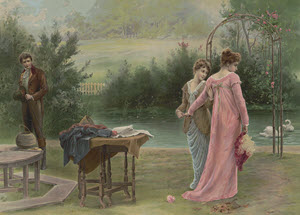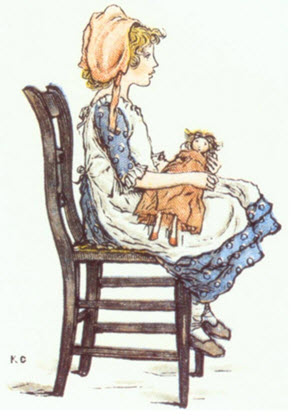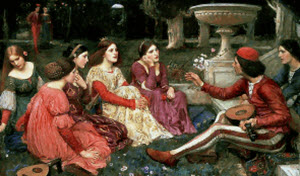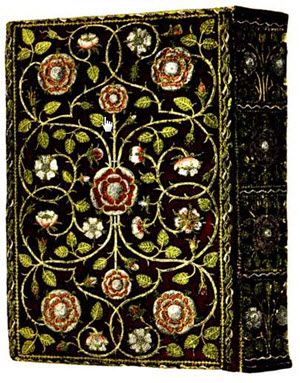EDGAR ALLAN POE - Part 12
The family moved to Richmond in the fall of 1835, and by November Poe was actual editor of the Messenger. His salary, with extra allowances for original contributions, was small, but enough. He had prospects of soon raising the sum to a thousand dollars a year, and he says that his Richmond friends received him with open arms. Yet he was not con tent. In September he wrote to Kennedy a letter full of undefined despairs, to which Kennedy replied with the good sense of a Dutch uncle. The melancholy letter was written just before he went up to Baltimore to get his bride, and the difficulties of that episode may account for his mood. Another explanation is found in the letter which White wrote to him during his temporary absence from Richmond : "If you should come to Richmond again, and again should be an assistant in my office, it must be expressly understood between us that all engagements on my part would be dissolved the moment you get drunk." At the beginning of the year he writes to Kennedy that he is fighting the enemy manfully. The Messenger prospered, and Poe published his tales as the year went on, and republished many of his verses.
At this time, 1837, he had not done his best work in prose, but he had shown the promise of his best, and, with the exception of the detective story, he had indicated the range of his genius. In fiction he had produced adventure, such as "Hans Phaal," characterized by a Defoe-like plausibility of detail and the interest of a "Sunday supplement 77 writer in mechanics and science; romances laid in a European no-man's-land, such as "The Assignation 77 and "Metzengerstein," suggested by or borrowed from his reading in foreign literature and the prose poetry of " Shadow : A Parable," as remarkable in visionary prose as something from Blake or De Quincey. No argument as to literary value is necessary to persuade any one with feeling for language who reads the last sentence of " Shadow" that he is in the presence of a writer who -can write: "And then did we, the seven, start from our seats in horror and stand trembling and shuddering and aghast, for the tones in the voice of the shadow were not the tones of any one being, but of a multitude of beings, and, varying in their cadences from syllable to syllable, fell duskily upon our ears in the well-remembered and familiar accents of many thousand departed friends." In such pieces and in the tales of morbid terror, "Morella" and " Berenice," we discover, I think, the poet compelled by the exigencies of the market to turn into prose, with the outward shape of narrative, visions, rhythms, and verbal magic to which his genius unhindered would have given form in verse.
The least successful kind of prose of which Poe gave specimens in his experimental years is the tale of grotesque humour. With his sure tact for words he called it grotesque and not humorous. He and some of his friends thought it was funny,-this nightmare grin. Poe had sufficient literary cleverness to simulate something that was not in him, but nothing in his legends of wonder, of physical and mental terror, makes the hair stand on end as does his attempt to write a funny piece. In criticism his intellectual discernment led him some times to a kind of sharp wisdom akin to humour. But it is impossible to think of Irving, Lincoln, Dickens, Mark Twain, and find much left in the word " humour" which can by any literary or charitable function of mind be stretched to apply to the writings of Poe,- or, indeed, to the motives which guided his conduct as a man.
His tales of cold horror remain stimulating for the fine adaptation of language to effect,-the adaptation which he him self, as every man must preach doctrines to fit his own achievements, announced as the object of the short story. But the horror no longer makes us sit up after midnight. We have lived through an age which produced horror mightily compounded of the facts of life,-Dickens and the Brontes and Hardy and the Russian novelists. Life, as one recognizes it in one's fellows, Poe seldom touched. Our generation has adjusted itself comfortably to Wuthering Heights and Bleak House, in which out of spontaneous combustion, spooks, and other superstitions leaps the human fact to grasp one by the throat; and we no longer shiver, as the author intended, at the posthumous dentistry of " Berenice." But Poe did develop a kind of terror of mind which few authors have dared to approach. He looked within himself, and gave us "William Wilson," "The Man in the Crowd/ 7 the satanically true "Imp of the Perverse." These and others of his maturer tales no change of literary taste, no satiety of reading, can outgrow. And, though he selected curious, remote, hushed, and tiptoe themes to play upon his instrument, the instrument is finely tuned, and it has a music clear and masterly, which makes him a member of the classic orchestra, an adopted son of French literature, an essential pure note in an age of English writing too prone to mistake mere power for excellence.




